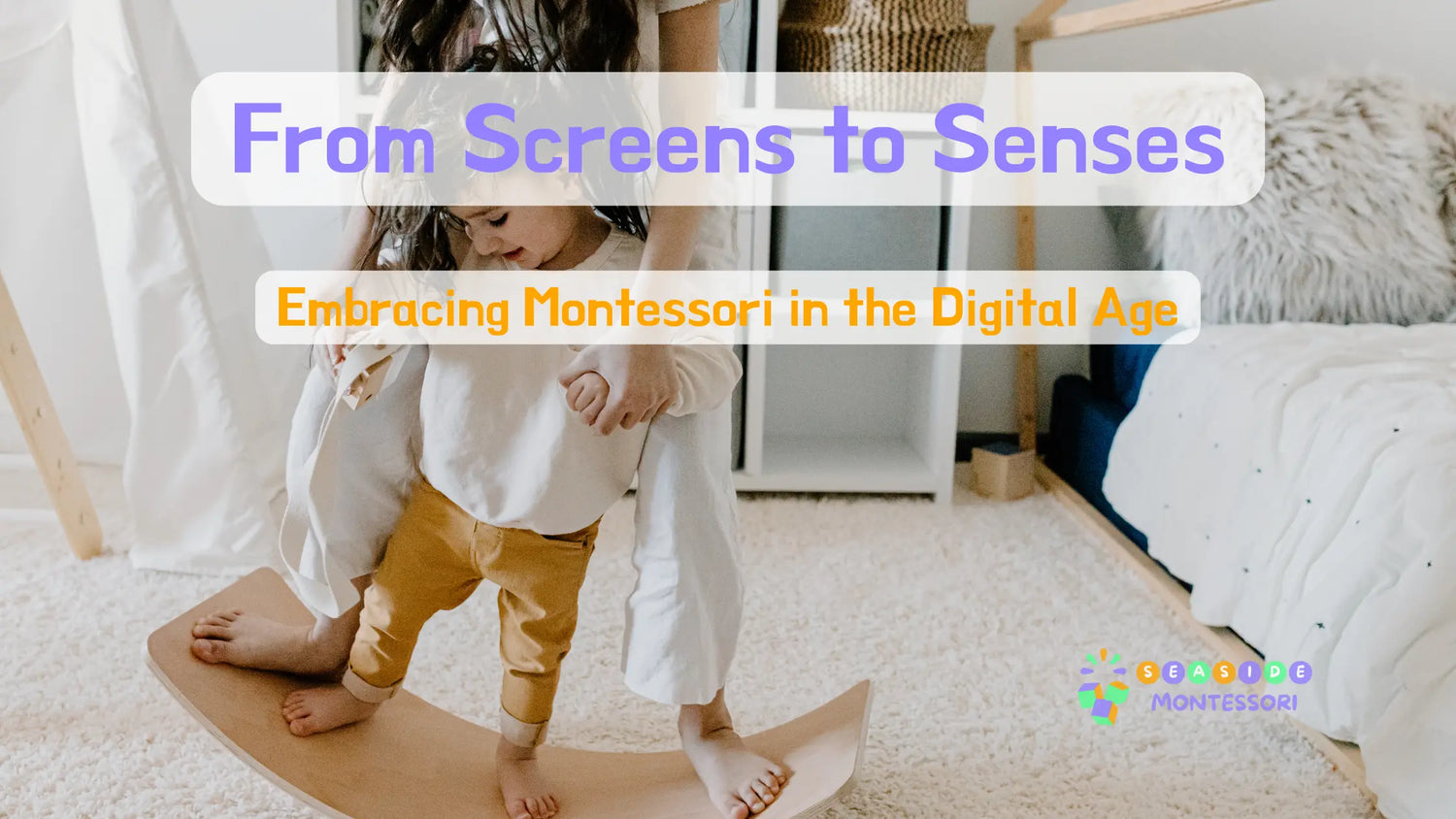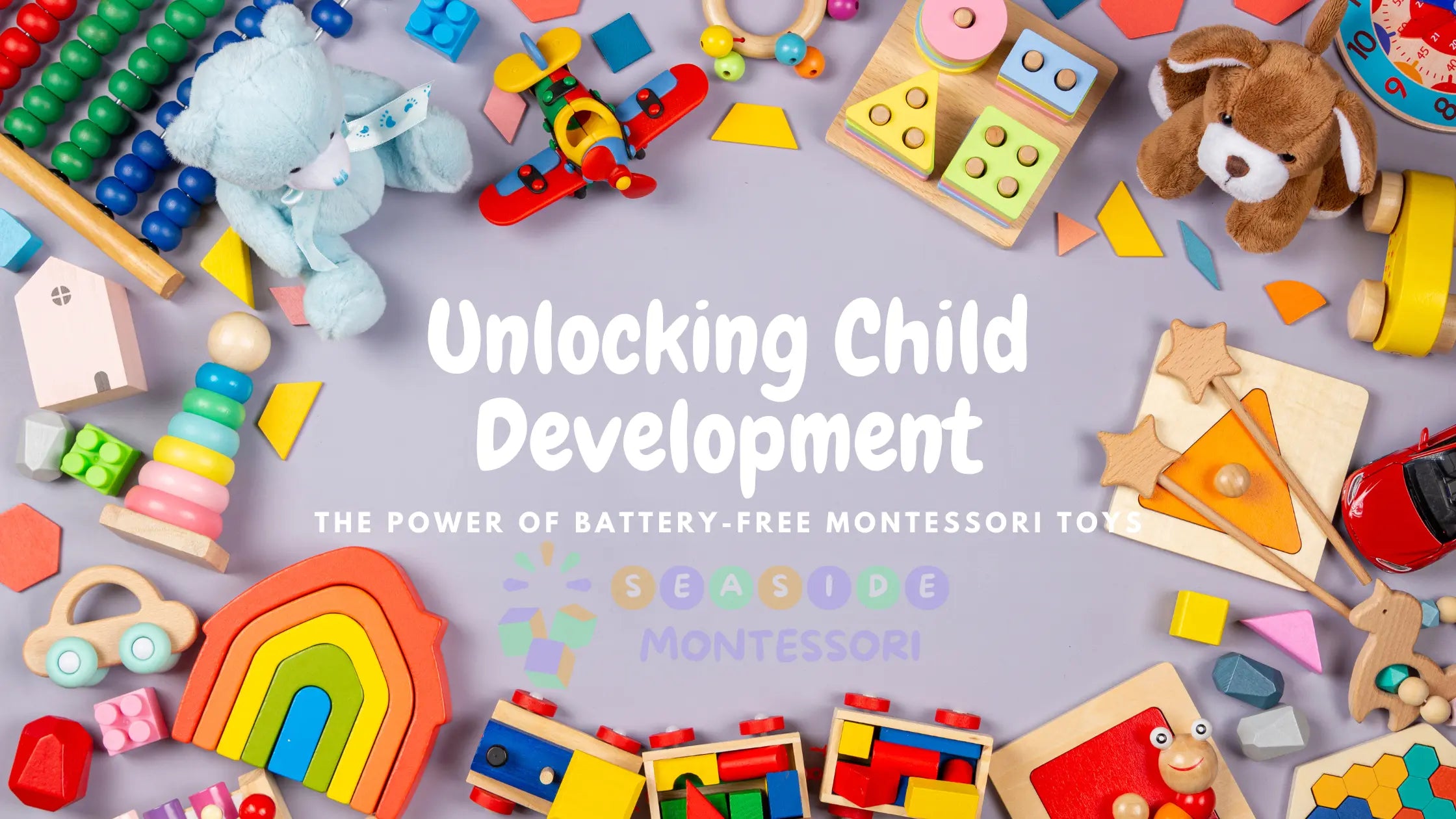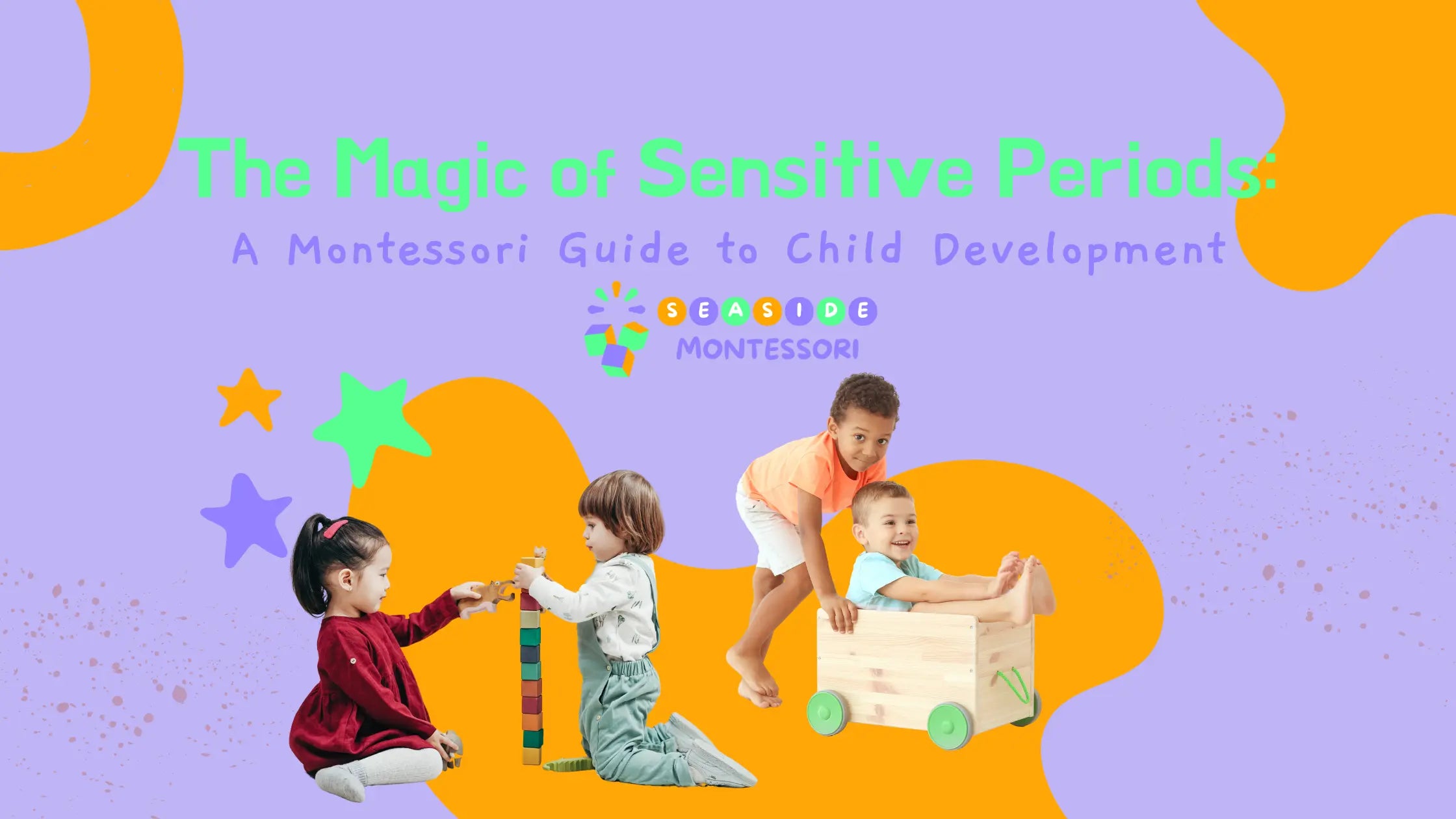In today's digital time, children are often immersed in screens from a young age. Whether it's smartphones, tablets, or computers, screens have become ubiquitous in modern society.
While technology undoubtedly offers many benefits, excessive screen time can have detrimental effects on child development. That's where the Montessori method shines as a refreshing alternative, emphasizing sensory engagement and active learning.
Maria Montessori, the pioneering educator behind the Montessori approach, believed in the power of hands-on experiences and real-life interactions for optimal child development. She emphasized the importance of engaging children's senses to foster learning and exploration. In contrast to passive screen consumption, Montessori education encourages children to use their hands, eyes, ears, and other senses to interact with their environment actively.
Excessive screen time has been linked to various negative outcomes in children, including decreased attention spans, delayed social development, and disrupted sleep patterns. Moreover, the constant barrage of stimuli from screens can overwhelm young minds and hinder their ability to focus and engage in meaningful activities. In contrast, Montessori education provides a balanced approach that nurtures children's natural curiosity and allows them to learn at their own pace.
One of the key principles of the Montessori method is the prepared environment, which is carefully designed to stimulate children's senses and promote independent exploration. Montessori classrooms are filled with hands-on learning materials that engage children's tactile, auditory, and visual senses. By interacting with these materials, children develop important skills such as concentration, problem-solving, and self-regulation.
Another aspect of Montessori education that sets it apart from traditional schooling is its emphasis on real-life experiences. Instead of relying solely on abstract concepts and rote memorization, Montessori curriculum integrates practical life activities that have real-world relevance. Whether it's pouring water, tying shoelaces, or sorting objects by color, these activities help children develop essential life skills while engaging their senses in meaningful ways.
In today's fast-paced digital world, it's more important than ever to provide children with opportunities for hands-on learning and sensory exploration. By embracing the Montessori approach, parents and educators can offer children a holistic education that nurtures their development in mind, body, and spirit. Let's shift our focus from screens to senses and empower our children to thrive in the digital age and beyond.








Leave a comment
All comments are moderated before being published.
This site is protected by hCaptcha and the hCaptcha Privacy Policy and Terms of Service apply.